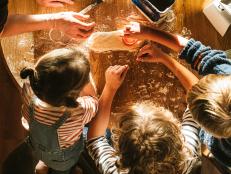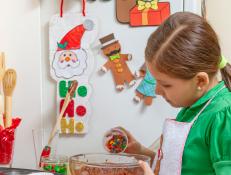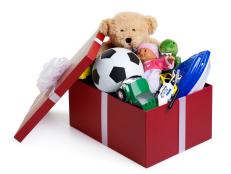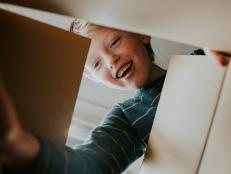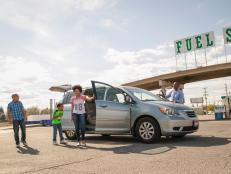Parenting Win of the Week: Teaching Our Kids About Sustainability
These expert tips will help your child understand that we're all in this together.


Alistair Berg
You have certainly heard the word "sustainability," probably now so more than ever. It has certainly become the buzziest of buzz words as we realize that our environment is in a bit of trouble. I like the way UCLA defines it, "Sustainability presumes that resources are finite, and should be used conservatively and wisely with a view to long-term priorities and consequences of the ways in which resources are used. In simplest terms, sustainability is about our children and our grandchildren, and the world we will leave them."
We all try to do things to be more sustainable like buying workout clothes made of recycled materials, upcycled snacks, and reusable water bottles, my family included.
But this left me thinking — do all of these small things really make a difference? Is there something else we should be doing to really make an impact to better the world?
Kris De La Torre, the sustainability coordinator for the Academy for Global Citizenship, a school in Chicago that focuses on developing students to have an impact on their community and the greater world, sat down with us to talk about this very topic.

Courtesy of Academy for Global Citizenship
First and foremost, I really wanted to know if these little things added up to make a big difference? The answer is no, yes, and maybe.
"The term sustainability seems to be leveraged more for marketing than action," she says.
Now that isn’t to say that taking a look at our consumption and resources isn’t important — it is. We as a society absolutely need to change what we are doing and those little changes can lead to bigger changes, so they can be important.
However, when teaching our kids about sustainability, she challenges us, as parents, to take a different approach.
Talk About Our Ancestry and Heritage
The best way to start teaching kids about sustainability is to help them understand where they came from. You don’t want to take "a doom and gloom approach to saving the environment," says De La Torre.
Teach them stories about your ancestors and how they lived off the land and valued their natural place.
.jpg.rend.hgtvcom.616.411.suffix/1650569440431.jpeg)
Courtesy of Academy for Global Citizenship
Familiarize Them with Waste Management
This may not sound super exciting, but teaching your kids about where their stuff goes after they use it can be essential to them understanding sustainability.
De La Torre recommends taking a look at your city resources. They often have stuff to teach kids about recycling, trash pickup, and composting if it’s available in your area.
Asking questions like: What happens to our things? What happens to our garbage? These inquiries can help kids understand their environment better.
Talk to them about how our "stuff" impacts our environment. Help them understand what we may do with a toy or piece of clothing when we are done with it (ideas like passing it down, donating it, recycling it, or disposing of it) can teach them without scaring them.
Help Them Love Nature
The people most inclined to want to protect our earth are often the ones who feel most connected to it. Get your kids outside on hikes to explore and appreciate nature. Have them plant seeds, pick up trash in the park, identify plants, or visit a new nature preserve or community park.

Courtesy of Academy for Global Citizenship
Model Having Enough
Kids often pick up consumer habits from their parents, so modeling having enough is key. Teaching your kids that things don’t have to be perfect to keep them — whether that’s an apple that may look funky or even a shirt with a tiny hole in it. Talking to your kids about why you make the consumer decisions you do can really help them learn that in a world where it’s easy to want to buy everything, it’s not necessary. Many young kids learn about wants vs. needs in school, so this can be a natural conversation that ties back to what they are already learning.
Don’t Sweat the Small Stuff
If you occasionally use a disposable water bottle, buy a trendy shirt that won’t last forever, or don’t buy imperfect produce, there is no need to beat yourself up, according to De La Torre. We need bigger legislative action to make a big difference and one water bottle isn’t going to save the world. For the next generation, it’s about giving them the understanding and appreciation for their world.
De La Torre says, "We may not be changing the world with our individual actions, but we can change the attitude we have around our environment and self-efficacy to make future change."
YOU MIGHT ALSO LIKE:






